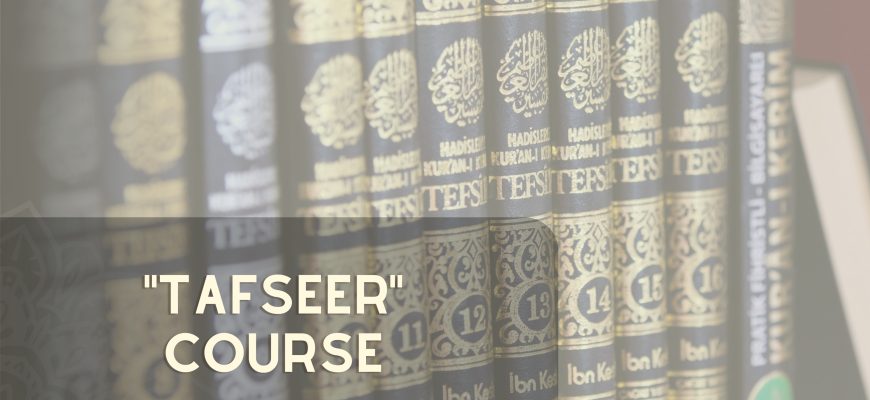- Contact Us: +971522387038
- Email:admin@islam-network.com

Tafseer Course
Quran Tafseer (also spelled as Tafsir) is the scholarly interpretation and explanation of the Quranic text. It is a detailed and comprehensive study of the Quran, providing insights into its meanings, context, and applications. Tafseer is an essential field of Islamic knowledge as it helps Muslims understand the deeper meanings and wisdom of the Quranic verses and how they relate to various aspects of life.

What You Will Learn?
1. Linguistic and Contextual Analysis: Tafseer involves a thorough examination of the linguistic aspects of the Arabic Quranic text. Scholars study the meanings of individual words, phrases, and sentences, as well as the context in which the verses were revealed.
2. Historical Background: Tafseer often delves into the historical context of the Quranic revelations. This includes understanding the circumstances, events, and challenges that the Prophet Muhammad (peace be upon him) and the early Muslim community faced at the time of revelation.
3. Exegesis of Verses: Quranic Tafseer involves the explanation and interpretation of each verse (ayah) of the Quran. Scholars provide insights into the intended messages, lessons, and wisdom behind the verses.
4. Thematic Analysis: Scholars identify and discuss the recurring themes and motifs present throughout the Quran. They explore the connections between different chapters (surahs) and verses, highlighting the unity and coherence of the Quranic message.
5. The Use of Hadith: Tafseer often relies on Hadith (Prophetic traditions) to clarify the meanings of Quranic verses. Authentic Hadith provide additional context and explanations of certain verses as understood by the Prophet Muhammad (peace be upon him).
6. Cross-Referencing: Tafseer scholars cross-reference related verses within the Quran to gain a holistic understanding of specific concepts or themes.
7. Interpretation of Difficult Verses: Tafseer addresses the interpretation of complex or ambiguous verses. Scholars may analyze different opinions from various exegetical sources to provide a comprehensive view.
8. Interpretation within the Framework of Islamic Jurisprudence: Some Tafseer works integrate legal rulings (Fiqh) derived from Quranic verses and Hadith, as they explain the practical applications of certain injunctions.
9. Different Schools of Tafseer: Various scholars and schools of thought have developed their approaches to Tafseer, resulting in a rich diversity of interpretations. Prominent schools of Tafseer include the Makkian and Madinian approaches, as well as different methodologies used by scholars like Ibn Kathir, Al-Tabari, Al-Razi, and Al-Qurtubi.
10. Contemporary Relevance: Some Tafseer works explore the relevance of Quranic teachings to contemporary issues and challenges faced by Muslims and the broader society.
Islam Network Copyright 2023 - All Rights Reserved
